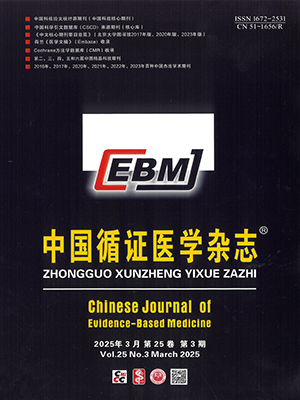| 1. |
世界卫生组织. 前十位死亡原因. Available at: http://www.who.int/zh/news-room/fact-sheets/detail/the-top-10-causes-of-death.
|
| 2. |
陈伟伟, 高润霖, 刘力生, 等. 《中国心血管病报告2017》概要. 中国循环杂志, 2018, 33(1): 1-8.
|
| 3. |
国家卫生和计划生育委员会. 2016中国卫生和计划生育统计年鉴. 北京: 中国协和医科大学出版社, 2016.
|
| 4. |
Ma Y, Xiong X, Li J, et al. Effect of health insurance on direct hospitalisation costs for in-patients with ischaemic stroke in China. Aust Health Rev, 2018, 42(1): 39-44.
|
| 5. |
刘娟, 杨栋, 李系仁, 等. 某院31天内再入院现状与影响因素分析. 中国卫生质量管理, 2011, 18(6): 22-25.
|
| 6. |
Kind AJ, Smith MA, Liou JI, et al. The price of bouncing back: one-year mortality and payments for acute stroke patients with 30-day bounce-backs. J Am Geriatr Soc, 2008, 56(6): 999-1005.
|
| 7. |
Kilkenny MF, Longworth M, Pollack M, et al. Factors associated with 28-day hospital readmission after stroke in Australia. Stroke, 2013, 44(8): 2260-2268.
|
| 8. |
Thomas JW, Holloway JJ. Investigating early readmission as an indicator for quality of care studies. Med Care, 1991, 29(4): 377-394.
|
| 9. |
刘玉琦, 郝晓刚, 王洪丽, 等. 某院出院患者31天内再住院分析与讨论. 中国卫生质量管理, 2014, 21(4): 40-41.
|
| 10. |
Bhattacharya P, Khanal D, Madhavan R, et al. Why do ischemic stroke and transient ischemic attack patients get readmitted? J Neurol Sci, 2011, 307(1-2): 50-54.
|
| 11. |
唐爱丰, 祝东林, 谢薇, 等. 脑卒中再入院的原因及其危险因素分析. 中华脑血管病杂志(电子版), 2013, 7(1): 376-381.
|
| 12. |
Rao A, Barrow E, Vuik S, et al. Systematic review of hospital readmissions in stroke patients. Stroke Res Treat, 2016, 2016(1): 1-11.
|
| 13. |
Tseng MC, Lin HJ. Readmission after hospitalization for stroke in Taiwan: results from a national sample. J Neurol Sci, 2009, 284(1-2): 52-55.
|
| 14. |
Lewsey J, Ebueku O, Jhund PS, et al. Temporal trends and risk factors for readmission for infections, gastrointestinal and immobility complications after an incident hospitalisation for stroke in Scotland between 1997 and 2005. BMC Neurol, 2015, 15: 3.
|
| 15. |
李欣海. 随机森林模型在分类与回归分析中的应用. 应用昆虫学报, 2013, 50(4): 1190-1197.
|
| 16. |
卫生部医政司. 神经内科临床路径. 北京: 人民卫生出版社, 2012.
|
| 17. |
中华医学会. 缺血性中风临床路径. Available at: http://www.cma.org.cn/attachment/2016612/1465718140116.docx.
|
| 18. |
王亚静. 用归一法分析某院2011年床位工作效率. 中国卫生统计, 2013, 30(6): 915-916.
|
| 19. |
施霁桉, 赵丽. 对病床周转率的反思. 中外医学研究, 2015, 13(22): 148-149, 150.
|
| 20. |
Singhal AB, Biller J, Elkind MS, et al. Recognition and management of stroke in young adults and adolescents. Neurology, 2013, 81(12): 1089-1097.
|
| 21. |
Smajlović D. Strokes in young adults: epidemiology and prevention. Vasc Health Risk Manag, 2015, 11: 157-164.
|
| 22. |
Renna R, Pilato F, Profice P, et al. Risk factor and etiology analysis of ischemic stroke in young adult patients. J Stroke Cerebrovasc Dis, 2014, 23(3): e221-e227.
|
| 23. |
Lewington S, Lacey B, Clarke R, et al. The burden of hypertension and associated risk for cardiovascular mortality in China. JAMA Intern Med, 2016, 176(4): 524-532.
|
| 24. |
Qin Y, Wang R, Ma X, et al. Prevalence, awareness, treatment and control of diabetes mellitus-A population based study in Shanghai, China. Int J Environ Res Public Health, 2016, 13(5): E512.
|
| 25. |
杨功焕. 2010年全球成人烟草调查-中国报告. 北京: 中国三峡出版社, 2011.
|
| 26. |
聂静, 向阳. 对某三甲综合医院住院天数与住院费用的分析. 新疆医学, 2015, 45(9): 1354-1356.
|
| 27. |
方黎明. 新型农村合作医疗和农村医疗救助制度对农村贫困居民就医经济负担的影响. 中国农村观察, 2013, (2): 80-92.
|
| 28. |
于长永. 疾病类型、医疗保险与农民就医机构选择行为研究. 农业技术经济, 2017, (2): 82-92.
|




